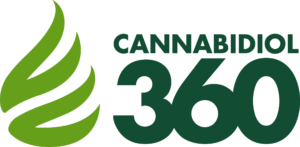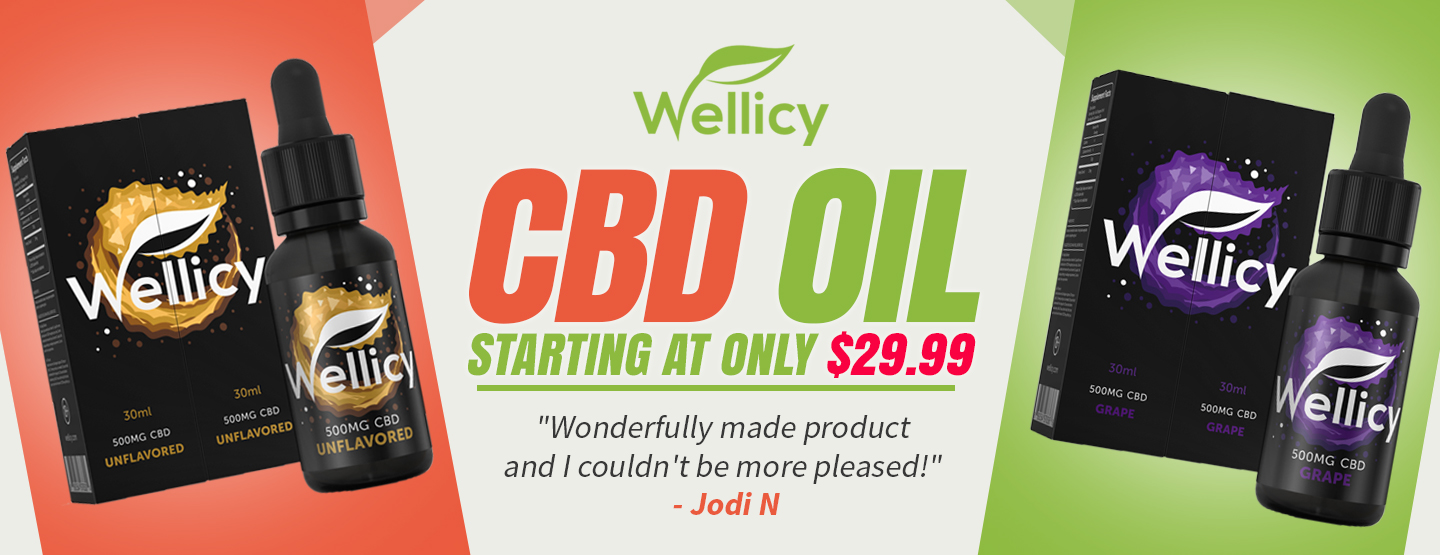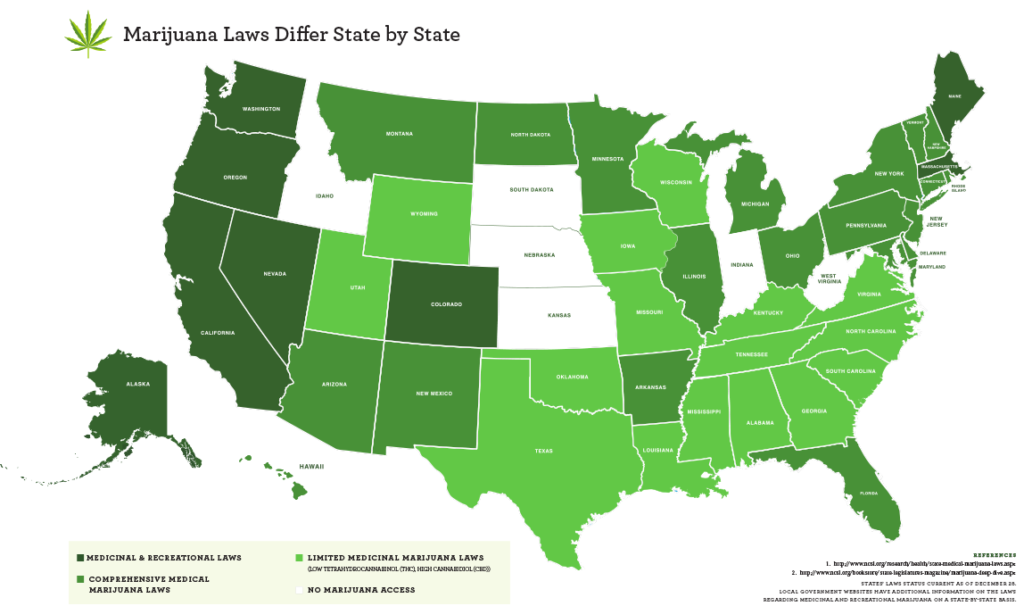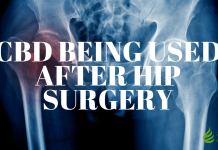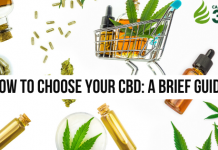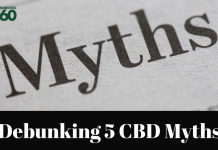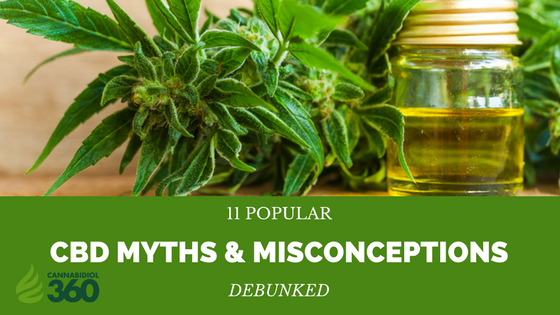
With the widespread legalization of medical and recreational cannabis, THC’s counterpart cannabidiol (CBD) is finally receiving the attention it deserves. Cannabis has been grown for decades with the end goal of increasing the psychoactive potency of THC.
But nowadays things are a little different. Sure THC has a wide array of medical benefits on its own, CBD is slowly beginning to steal the spotlight in the medical community for being known to treat medical conditions that have only been able to be treated with prescription drugs.
Cannabis strains such as Charlotte’s web, are grown strictly for its high CBD content. But that’s not the only method of extracting CBD, the hemp plant is also a source of cannabidiol.
As with most things that begin to become popular in the general public, a lot of misinformation and myths begin to spread. Leaving CBD newbies confused about what’s true and what’s not.
Today we are going to debunk to most common CBD misconceptions, so you can officially separate the facts from the myths.
Myth 1: All CBD is Created Equal, No Matter the Source
According to the haters of cannabidiol, no matter the source of CBD it’s all the same. Basically what they’re saying is whether you are smoking cannabis, or consuming hemp derived CBD oil, your body cannot decipher the difference so it doesn’t matter where the cannabidiol is harvested from. Which is nothing but an outright lie!
Here’s the truth…
It does matter where your CBD is coming from. Sure the flower tops and leaves of many industrial hemp strains may be a high-quality source of CBD, but industrial hemp is certainly not the most optimal source of cannabidiol.
When compared to CBD-rich cannabis strains, industrial hemp has a far less potency of CBD. Which is why such large quantities of industrial hemp are required in order to extract small amounts of hemp derived CBD oil.
Myth 2: THC is Horrible for You, and CBD is Good for You
To the most diehard cannabis prohibitionist, they are using the proven benefits of CBD as a platform to further stigmatize THC.
Framing tetrahydrocannabinol (THC) as the demon cannabinoid and CBD as the angel cannabinoid. All because THC induces psychoactive effects, while CBD does not.
Let’s dispel this misconception…
When looking at both cannabinoids, CBD and THC, they each offer their own set of special medicinal properties. While each both have a long list of illnesses and diseases that they each may be more effective in treating.
But you see, when both CBD and THC are used synergistically they work more effectively. A process that is referred to as the entourage effect. So when used together, they may actually strengthen each other’s therapeutic properties.
Myth 3: CBD is 100% Legal in All 50 States
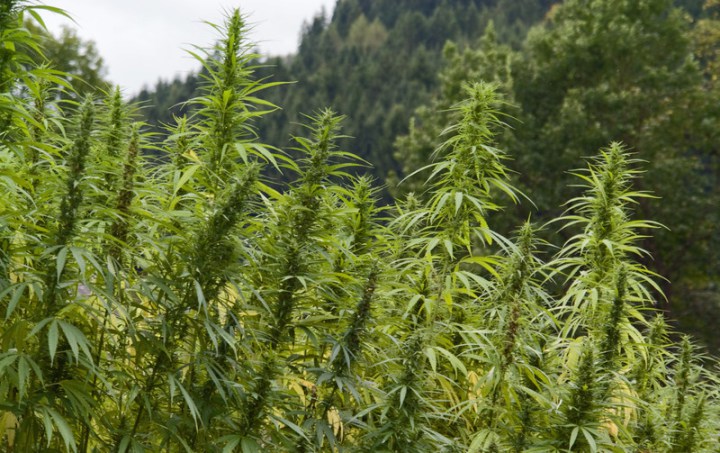
When it comes to the the topic of legality of CBD in all 50 states, you will often come across a lot of misinformation that can steer you in the wrong direction.
You may find that manufactures of hemp derived CBD oil saying that it’s 100% legal for them to advertise and sell their products in all 50 US states, as long as the oil contains less than 0.03% THC. Which is only partially true, but it’s important to read in between the lines.
The truth of the matter is…
Based off of Federal Law, all US farmers are prohibited from growing hemp in the United States. However, companies such as Wellicy are able to sell hemp derived CBD products as long as the industrial hemp is imported and contains levels of THC no higher than 0.03%.
As with most legislation progress is slow, but there are bills being currently proposed to help lighten up the laws on the cultivation of industrial hemp. But currently at the time of writing, there are only a few that allow the cultivation of hemp for research, commercial, or pilot programs.
Myth 4: CBD Infused Hemp Oil is Terrible for Children
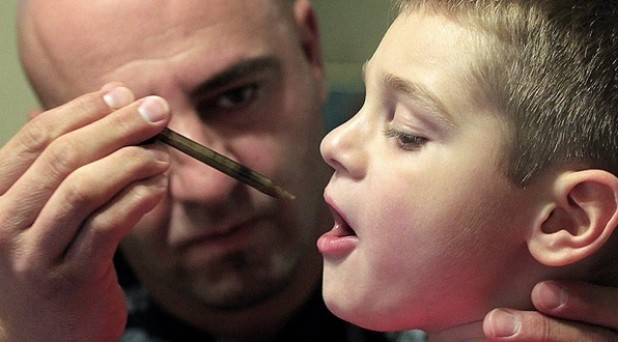
When talking to misinformed sources or anti-cannabis groups, they will tell you that cannabidiol is dangerous and not safe for kids under the age of 18.
This misinformation stems from people directly comparing hemp derived CBD oil to that of marijuana. Sure both CBD and THC impact your body differently, but nothing has been uncovered that demonstrates CBD oil being dangerous or harmful to children.
The truth…
As you may already know, CBD rich cannabis strains such as the popular strain Charlotte’s Web, which was specifically developed to helped a young girl named Charlotte with her frequent seizures. The results were so incredible, the strain was named after Charlotte.
The benefits of CBD oil for children specifically who suffer from epilepsy, have been demonstrated in medical studies. Of which, none reported any side effects.
Cannabidiol oil isn’t typically a doctors first option for treatment in kids, it’s usually used later on after other drugs have failed.
If you talk to the numerous families that have begun treating their children with CBD it’s looked at as a miracle molecule, that enables their kids to lead healthy and happy lifestyles.
Myth 5: CBD Oil Will Get You High
This could not be any further from the truth. Cannabidiol is the non-psychoactive cannabinoid, THC on the other hand is the cannabinoid that is responsible for the psychoactive high that is frequently discussed.
Whether you are using hemp derived CBD oil in crystal form, a tincture, topical, vape juice or cartridge, you will not get high!
Myth 6: You Need a Prescription to Obtain CBD
This myth is so widespread, in my opinion, because people who are uneducated about cannabis and other cannabinoids simply lump CBD together with THC in regards to legality.
You are not required to have a prescription to obtain CBD, unlike the states with medical marijuana that require you to have a mmj license (prescription) to legally obtain cannabis.
But hemp derived CBD is accessible in all 50 states. However, the only way hemp infused CBD oil is legal across the board is when the CBD oil is derived from hemp that is imported. Excluding it from the Federal Controlled Substances Act. A law that is responsible for making cannabis plants and their extracts illegal. 🙁
But don’t worry, hemp derived CBD oil can be legally purchased and used in all 50 US states.
Myth 7: CBD Provides the Greatest Benefits without THC
When it comes to power couples, CBD and THC are a match made in heaven! We have already discussed the scientific studies that have shown that both cannabinoids work synergistically, to deliver the entourage effect above, but that’s only just the beginning.
To finally silence the myth once and for all, cannabidiol is more effective when combined with THC and vice versa.
According to British researchers, its been shown that CBD enhances the anti-inflammatory benefits of THC from an animal modeled colitis.
To further demonstrate this point, a combination of CBD and THC provided greater anti-tumoral effects than either cannabinoid on its own. This was tested on breast cancer and brain cancer cell lines.
The treatment of neuropathic pain is also greatly improved when a combination of CBD and THC are used, compared to the two molecules on their own.
Myth 8: CBD Only Laws Serve the Patient Population
Currently there have been 15 states that have passed “CBD Only Laws”, which are more accurately known as low THC laws. Certainly other sates are likely to follow suit. Furthermore, some states even restrict access to CBD infused products unless you are diagnosed with a disease that they specify can help be treated with cannabidiol.
If you ask a cannabis prohibitionhist, these laws are adequate. But this couldn’t be further from the truth.
Setting the facts straight…
The CBD only laws apparently allow the use of hemp derived or cannabis derived CBD oil so long as the THC content doesn’t exceed 0.03%. The problem with this is a CBD rich product with trace amounts of THC won’t necessarily work ideally for everyone. It’s simply not a one size fits all when it comes to cannabinoid treatments.
A commonly known fact about cannabidiol is its effectiveness for suppressing epilepsy and seizures. But as many studies have proven, there are patients who have enjoyed greater benefits by also using small amounts of THC in congruence with CBD.
In order to provide patients with the greatest health improvements is by granting them access to the entire cannabis plant. This will allow patietns to use the varying cannabinoids in congruence so they can receive the treatment they so greatly deserve.
When it comes down to it, cannabis therapeutics aren’t a one size fits all, and the same goes for compounds, products, or strains. Patients need to experiment to find what’s best for their personal medical needs.
Myth 9: CBD from Hemp is Inferior to CBD from Cannabis
The haters will say that if CBD oil is derived from hemp that it’s inferior to CBD oil that is extracted from specially-bred cannabis plants with high levels of CBD.
This is simply not true, and the person telling you this is simply not educated on the topic.
Here’s the entire truth…
Whether CBD oil is derived from industrial hemp or specific cannabis plants, CBD is CBD! Although there are slight differences between CBD Isolate and Full Spectrum CBD.
Yes, it’s absolutely true that industrial hemp has a far less quantity of CBD by dry-weight compared to CBD rich cannabis strains. But the differences become negligible once the oil is extracted.
Once the CBD enters your body, your endocannabinoid system is simply unable to decipher where the CBD originated from.
Myth 10: CBD Turns into THC Following Ingestion
This is not as commonly spread, but there is a myth circulating that scares people into thinking that once CBD is consumed it morphs into THC when immersed in a liquid similar to gastric acid.
Although this chemical reaction is technically possible, there are no human enzymes that are capable of this transformation.
Myth 11: All Cannabidiol Oil is the Same
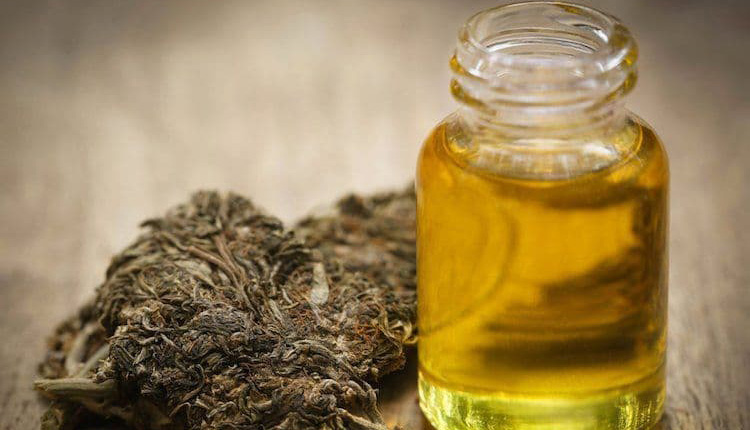
When looking at purchasing products infused with CBD oil, you need to be sure to pay attention to the purity and concentration.
Because according to the naysayers, all CBD oil is the same.
But here are the facts…
Not all hemp products you come across contain the highly prized cannabidiol. Specifically, you’ve more than likely seen hemp seed or organic hemp oil at your local grocery or health foods store.
These specific types of products are extracted by crushing only hemp seeds. Sure organic hemp seed oil contains numerous beneficial essential vitamins, minerals, and essential fatty acids. However, these products do not contain any amount of CBD.
If you want to take advantage of the numerous health benefits that cannabidiol provides, you will want to make sure to only purchase hemp oil that is infused with CBD and other prized cannabinoids like CBG. Which is extracted through the CBD-rich stalks and leaves of hemp.
Final Thoughts
Now that we have put an end to these CBD myths once and for all, CBD and even THC should hopefully stop being vilified. So we can start making progress in the federal legalization of CBD and THC so patients that desperately need cannabinoid treatment can receive the treatment they deserve.
What are some of the most outrageous myths/misconceptions you have heard in regards to CBD? Let us know in the comments section below, talk to you soon!
